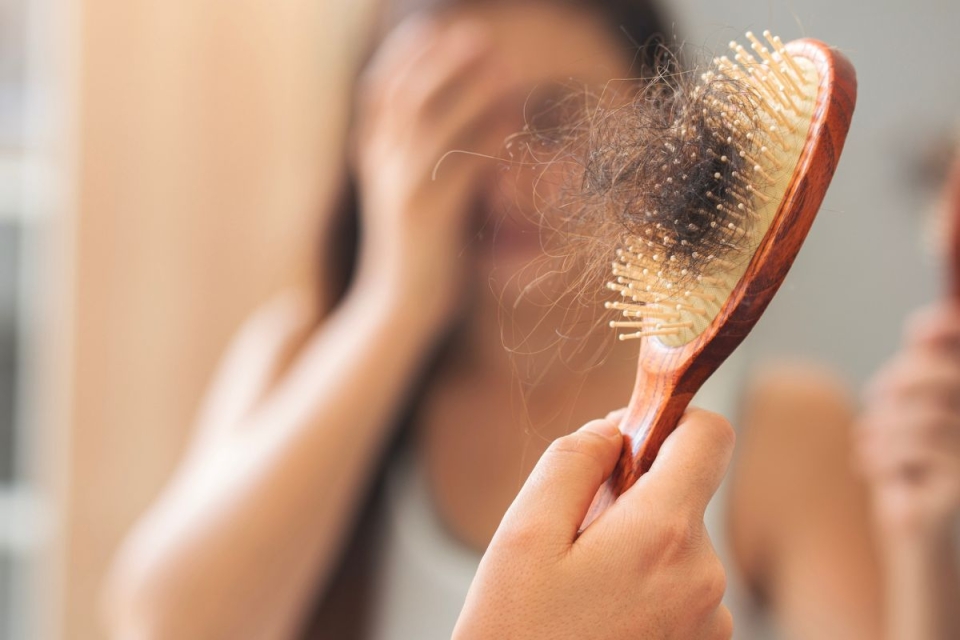Thought hair loss was just for men? If your once-full ponytail feels half its size, menopause might be to blame. Hormonal shifts as you age can affect your hair’s growth, texture and shine, says Manisha Purohit, MD, a women’s health specialist and OB/GYN at HonorHealth.
She explains why hair loss happens during menopause — and what you can do to fight it.
Shedding light on menopausal hair loss
It’s called “the change” for a reason. As you enter perimenopause, levels of estrogen and progesterone start to decrease. These are the hormones that help hair grow strong and full.
At the same time, other hormones called androgens become more dominant. This can lead to thinning and slower growth around the crown and temples, as well as texture changes, shedding and less volume.
Is there a cure for hormonal hair loss?
“I often get asked if a certain shampoo will fix hair loss in menopause. The answer is no, but the right kind can help,” says Dr. Purohit. Use gentle, sulfate-free products with ingredients like biotin, keratin or caffeine to support hair strength and fullness.
Nutrients such as biotin, vitamin D and iron are also beneficial. If you’re considering vitamins or supplements, talk with a women’s health specialist first to make sure they’re right for your body.
How it's treated
Looking for extra support? Your doctor may recommend:
- Topical treatments like minoxidil to stimulate new growth.
- Low-level laser therapy to boost hair density.
- Hormone therapy when appropriate, based on your health and risks.
- Prescription medicines such as spironolactone to reduce androgen effects.
- Platelet-rich plasma (PRP) injections, an emerging therapy that uses your own blood plasma to encourage regrowth.
For a natural treatment, Dr. Purohit suggests scalp-nourishing oils such as pumpkin seed, coconut and rosemary oil, along with natural sprays made from biotin, caffeine and rice water.
“I also draw on my background in Ayurvedic medicine, which connects hair health to overall balance in the body,” she says. “Oils like bhringraj, amla and brahmi have been used for centuries to calm the scalp, strengthen roots and promote growth.”
Hair today, gone tomorrow? Not always.
Menopause brings big changes, but you're not destined for thinning hair forever. With prompt attention and a thoughtful plan, you can protect your hair and your confidence.
Related content
Listen to your heart
Chest pain isn’t the only warning sign of a heart attack. Learn the symptoms women should never ignore — and how to spot them early.
Checkups you shouldn't skip
Missed your mammogram or overdue for a screening? Get back on track with your well-woman exam and other tests that bring peace of mind.
Make moves against breast cancer
Did you know that simple lifestyle changes can lower your risk of developing breast cancer? Discover expert tips that help protect your health.

